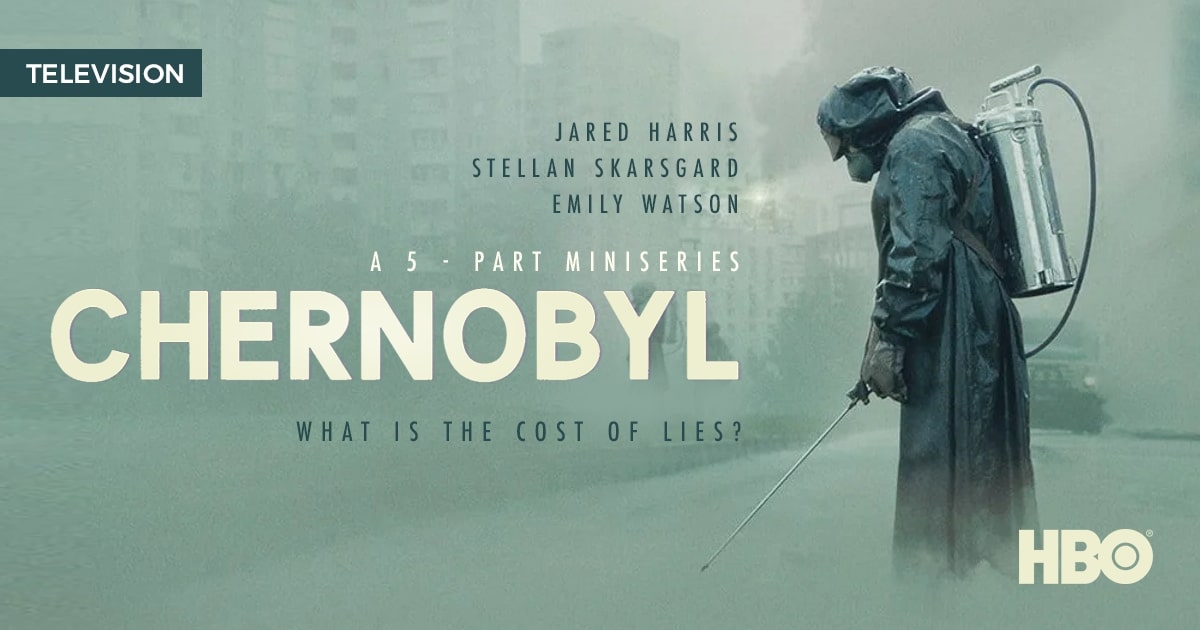 What is the cost of lies? The question is put by Valery Legasov (Jared Harris), a key member of the commission investigating the nuclear accident of Chernobyl, who was tasked to aid the cleanup efforts, just before the final credits roll in the last episode. Based on actual events, the five-part miniseries by HBO tries to answer just that while revealing the horrors of a man-made tragedy and the unprecedented long-term impact of the lies by those who were the custodians of the nuclear facility, and ignorance that led to one of the worst disasters in the human history.
What is the cost of lies? The question is put by Valery Legasov (Jared Harris), a key member of the commission investigating the nuclear accident of Chernobyl, who was tasked to aid the cleanup efforts, just before the final credits roll in the last episode. Based on actual events, the five-part miniseries by HBO tries to answer just that while revealing the horrors of a man-made tragedy and the unprecedented long-term impact of the lies by those who were the custodians of the nuclear facility, and ignorance that led to one of the worst disasters in the human history.
On the night of 26 April 1986, an experiment, incompetently supervised by the engineer Anatoly Dyatlov (Paul Ritter) at the Chernobyl Nuclear Power Plant, goes horribly wrong, leaving the nuclear reactor cores exposed and burning. The plant workers and the firefighters rush to control the damage and are exposed to radiation causing terminal sickness. On the orders of General Secretary Mikhail Gorbachev (David Dencik), Deputy Chairman Boris Shcherbina (Stellan Skarsgård) and Legasov are sent to Chernobyl to take stock of the situation and report back.
Nuclear physicist Ulana Khomyuk (Emily Watson) is a composite character, created to represent dozens of scientists who worked tirelessly alongside Legasov at Chernobyl, and to honor their dedication and service to truth and humanity. It is believed, some of them spoke out against the official account of events and were subjected to denunciation, arrest and imprisonment. Khomyuk in Minsk is alarmed by a radiation spike and discovers the source to be Chernobyl. After investigation, she learns about Legasov’s solution to put out the fire. She reaches out to Legasov with a concern that his method may actually cause a steam explosion. Their last resort is a deadly mission to drain the water and they need three volunteers to execute the task. “You don’t need an exact number to know if it will kill us. But you won’t even tell us that. So why should we do this? For what? 400 rubles?” asks a plant employee. “You’ll do it because it must be done,” answers Shcherbina.
The mini-series is truly a cinematic accomplishment that triumphs in capturing the physical and psychological impact on the life in Chernobyl and the city of Pripyat. The heroic stories of those who went to great lengths to tackle the disaster are well fleshed out. From Lyudmilla, the pregnant wife of the firefighter Vasily Ignatenko to Bacho, the Soviet-Afghan War veteran in charge of killing infected animals to Glukhov, the leader of a crew of miners, Chernobyl includes a variety of voices and characters to weave a compelling narrative that never loses pace or emotional depth. Even in the quiet, slow-motion shots of life in a city with poison in the air, Craig Mazin creates an atmosphere screaming back at humanity accusingly. The background score transports you right into the dreadful zone abuzz with chirping radiation detectors.
Legasov goes against his conscience to sell USSR’s cover-up story to the West at the International Atomic Energy Agency in Vienna. But, he decides to speak his mind during his testimony at the trial of Dyatlov, Bryukhanov, and Fomin and exposes the state secrets concealing a fatal design flaw in the nuclear plants. His truth amounts to treason and Legasov is detained by the KGB and stripped of all credits for his work in Chernobyl. “Every lie we tell incurs a debt to the truth. Sooner or later, the debt is paid,” Legaslov tells the judge.
For those who seek to understand when the fall of the erstwhile Soviet Union began, 1:23:45 would be a good place to start.
Photo Credit: HBO, Sky UK



